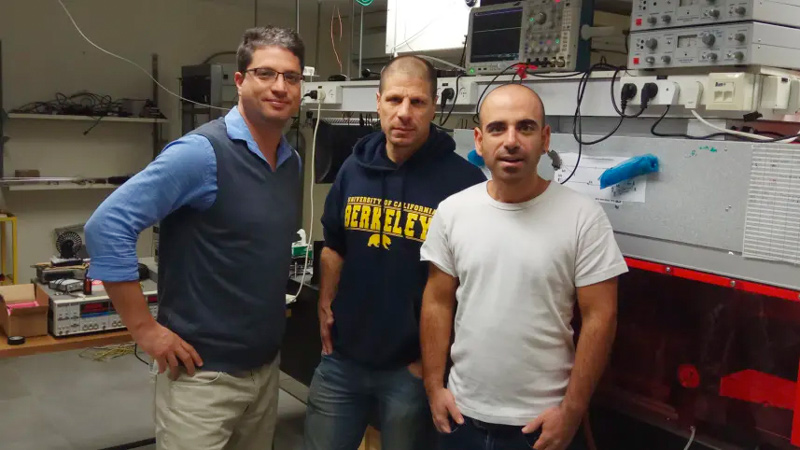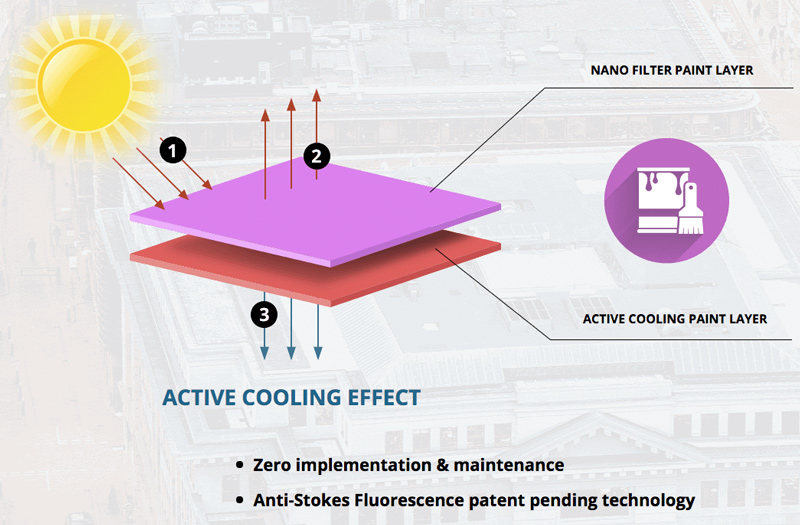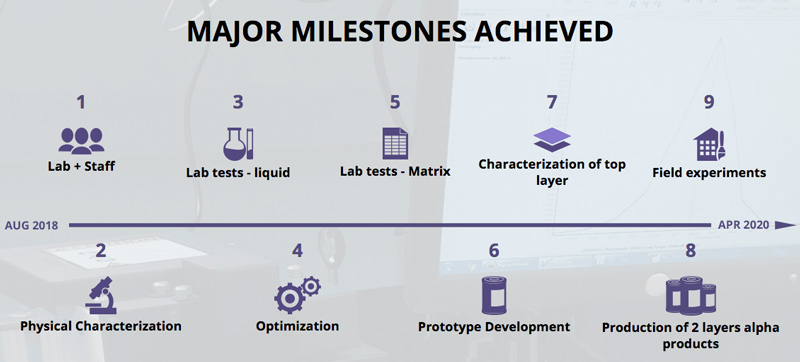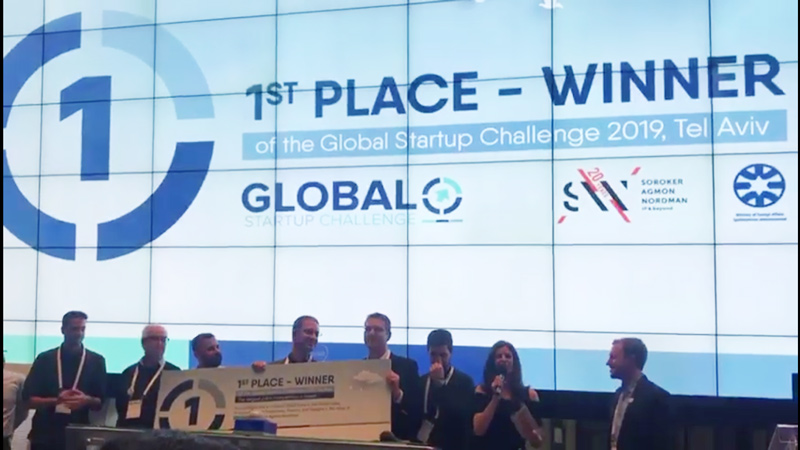Editor’s note: HU Prof. Guy Ron invented the high-tech, light-filtering coating that powers the paint behind SolCold, a patent-pending technology that reverses the natural phenomenon of photon energy released by the sun. The paint developed by SolCold consists of two layers: the outer one that filters out the sun’s rays and the inner one that actively cools the material by turning heat into light. The company was a finalist at the 2017 deep tech competition Hello Tomorrow in Paris and was selected as one of six Israeli companies to take part in the 2016 Global Entrepreneurship Summit at Stanford University.


Air-conditioning is one of the largest challenges facing humanity in a warming world. The warmer our environment gets, the more people will want to own and use air conditioners. But the air conditioners’ electricity consumption in turn creates pollution and further heats the air surrounding the building, and contributes to global warming.
The number of air-conditioning units in the world is forecast to jump to 5.6 billion in 2050, from 1.6 billion as of 1990, according to International Energy Agency statistics. A large portion of that growth will be in countries such as China and India.
Inventors in Israel and other countries are hoping to develop technology that ends that damaging feedback loop, such as by developing new materials and technologies that convert the sun’s heat into cold. With such technology, the stronger the sun, the colder the effect.

One such company is SolCold of Nes Tziona. SolCold is working on developing a special paint based on nanotechnology that uses sunlight to create a cooling effect. The material absorbs sunlight and then reflects it at higher wavelengths, which contain more energy. By being converted into higher wavelengths, the temperature is lowered. As a result, the hotter the environment, the more the cooling effect.
Yaron Shenhav, a founding partner and CEO of SolCold, says that when it’s 40 degrees Celsius (104 degrees Fahrenheit) outside, the material can reflect temperatures of 22 degrees Celsius. “This is an optimal point for us,” he notes.
The full cooling effect of the coating does not necessarily penetrate to whatever is inside it, be it a car or building. However, Shenhav notes that the coating could cool the interior by some 5-10 degrees Celsius.

And what happens in winter, when no one wants a house that automatically cools itself? Shenhav says that SolCold’s technology is a function of the external temperature, meaning it will have almost no cooling effect in winter, even in full sun.
No number of ostensibly environmentally friendly technologies have been proven ultimately to have damaging side effects. The company is aware of this risk, notes Shenhav, and thus the energy reflected by its paint does not warm the environment, he notes. The production process will be a clean one, and the nanoparticles themselves will not pollute, he says.
The company was founded in 2016 by Shenhav, an electro-optics engineer; Vice President of Finance Gadi Grottas and Hebrew University of Jerusalem physics professor Guy Ron, a technical adviser to the company. SolCold, which has 10 employees at its Nes Tziona offices, recently announced that it had raised $3.5 million from the Singapore investment fund Chartered Group. It had previously crowdfunded $550,000 and received an additional $100,000 from the Gad Zeevi group.
Shenhav says the company’s technological principle has proved itself, and that the next challenge is to turn it into a commercial product.
It intends to demonstrate its product in partnership with vehicle and aviation companies over the next year, and then to launch commercial production.
“Our vision is that this material become a standard for any vehicle or building roof,” says Shenhav. “The effect will very much reduce global warming.”
“It’s important to me that someone who buys this coating enjoy immediate personal benefits — energy savings and a quick return on investment — as opposed to other green products and environmentally friendly energy, which are generally considered expensive and require encouragement and subsidies.” Solar panel installation, for example, is an investment that takes years to pay off.

Other companies are also working on products that function on similar principles. The best known is U.S. company Skycoool, which developed panels that use sunlight to cool buildings; its technology is different from SolCold’s and relies on infrared light.
Another U.S. company, Radi-Cool, has also developed cooling technology similar to Skycool.
Shenhav explains that the infrared-based technology developed by Rad-Cool and Skycool is inefficient in humid environments. “We’re the first to prove the feasibility of using visible light ,” he said.
Cooling systems such as air conditioners and refrigerators are responsible for some 8% of greenhouse gas emissions and 17% of electricity use, according to research over the past few years.
